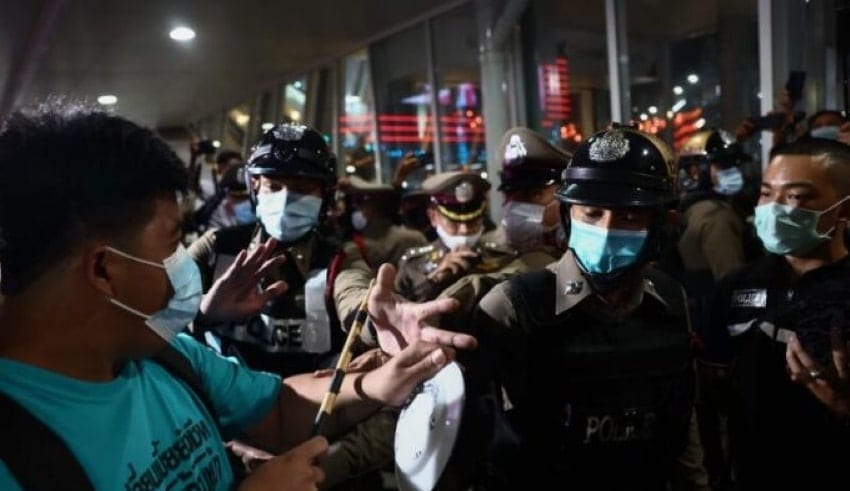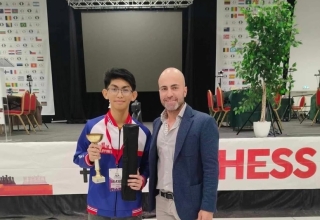
A day after a Bangkok court sent four of its representatives into pre-trial detention on royal defamation charges, Thai pro-democracy groups have vowed to escalate their demonstrations calling for monarchy reform and a new Constitution.
Thousands of protesters gathered in central Bangkok to demand the immediate release of the leaders and to condemn the inactivity of the government against their demands. In view of this, Panusaya Sithijirawattanakul who is one of the main protest leaders shared earlier that the denial of bail is an indication that the authorities are taking a confrontational stance.
Recently, a court denied bail to lawyer Arnon Nampa where a student leader Parit Chiwarak and two others charged with violating the lese majeste law of Thailand. Among the activists who have led a campaign that has broken long-held taboos about openly debating and challenging the monarchy of the country, which sits at the apex of Thailand’s control are the detained leaders.
More frequent demonstrations would bring pressure on the government of Prime Minister Prayut Chan-o-cha, which is facing a vote of no confidence next week and fighting a recession in the economy that depends on trade and tourism.
Though political analysts expect the authorities to charge more activists to weaken the protest movement in the coming days under the lese majeste act. For any instance of defaming, insulting or threatening the king, queen, heir apparent or regent, Thailand’s lese majeste law is one of the harshest in the world, mandating as many as 15 years in jail.
There were at least 58 activists who have led protests have been prosecuted by the authorities since late November and have called for a review of the monarchy’s powers. Mr. Prayut highlighted when asked about the recently rally that Thai people should support each other and learn from protests in the past.
The movement that began in mid-2020 is calling for constitutional changes and the resignation of Mr Prayut, who ruled the nation for five years as junta leader before becoming prime minister after the 2019 elections. While street protests have become less popular since mid-December due to the fresh wave of Covid-19 infections in Thailand where public demonstrations are now resuming.
The court’s refusal to allow our friends to get bail is a sign that there’s no compromise. So they have to come out and show their strength and tell them that they won’t stop with their demands.
Morever, Human Rights Watch expressed concern about the growing use of lese majeste legislation against pro-democracy activists and said that without trial, the arrested leaders could spend years in prison.
























